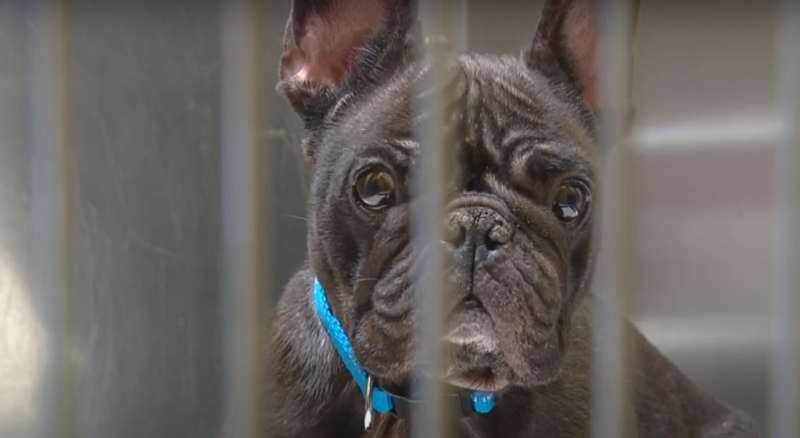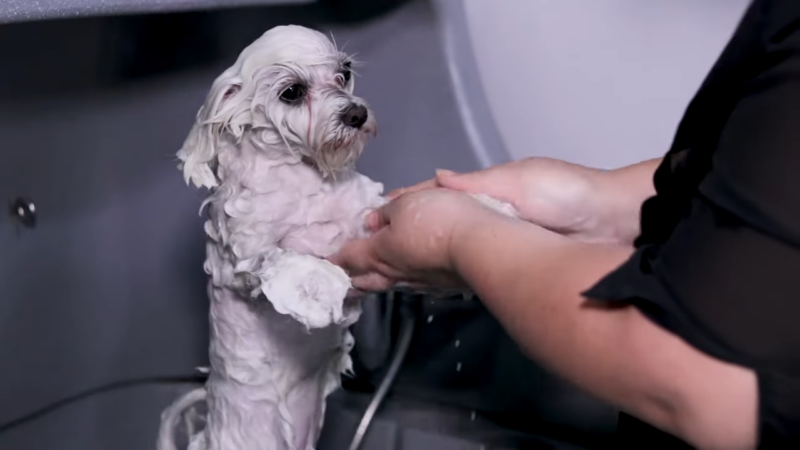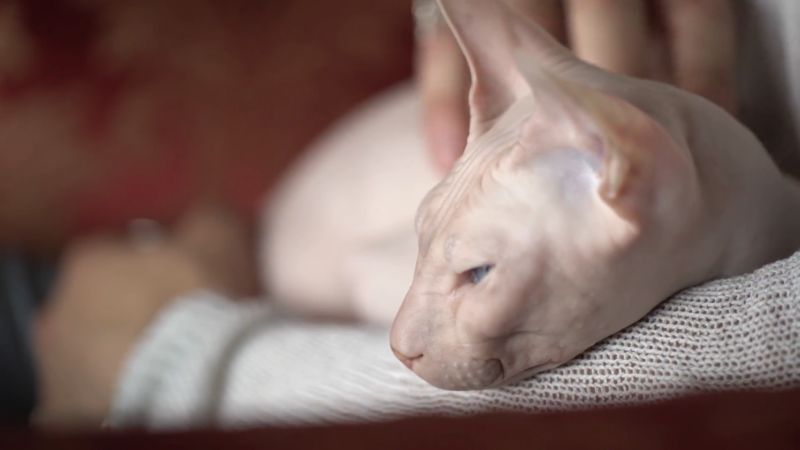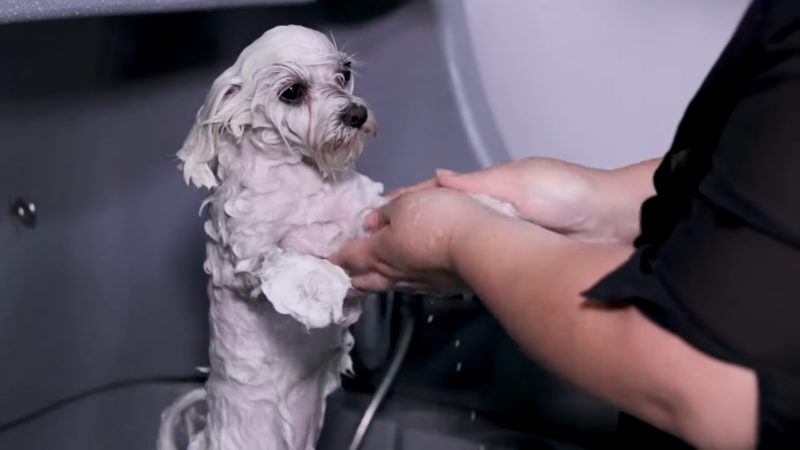
-
 Jane Harmon
Jane Harmon
- Published:
- Updated: March 12, 2024
- Category: Dog Specific Care, Pet Names and Types
Share Post:
Have you ever wondered how long a Merle French Bulldog can be your loyal companion? Just like any dog lover, it’s natural to want to know about the lifespan of these adorable pups.
Whether you’re considering bringing a Merle Frenchie into your family or you already have one by your side, understanding their lifespan is essential for providing the best care and companionship.
In this article, we’ll explore the factors that influence the lifespan of these dogs and provide you with insights to ensure your furry friend enjoys a happy and healthy life for years to come.
Key Features of the Breed

French Bulldogs are a popular breed worldwide. They have their roots in England. They were bred as miniature versions of the English Bulldog to accompany lace workers during the Industrial Revolution.
When these workers migrated to France, they took their tiny bulldogs with them, leading to the breed’s popularity in the country and its subsequent naming.
General Characteristics
These dogs are known for their affectionate nature and adaptability. They are small, muscular dogs with smooth coat, compact build, and a pug nose. Their expressive eyes and wide ears make them particularly endearing to many pet lovers.
| Feature | Answers |
|---|---|
| Coat Color | Varied coat colors with characteristic merle patterns |
| Size | Small to medium-sized; compact and muscular build |
| Body Shape | Short snout, flat face, and erect “bat ears” |
| Eyes | Can be blue, brown, or heterochromatic (different colored eyes) |
| Tail | Short, straight, and carried low |
| Coat Texture | Short, smooth, and fine coat |
| Patterns | Distinctive merle patterns with mottled or speckled appearance |
| Weight | Typically around 16-28 pounds (7-13 kg) |
| Height | About 11-12 inches (28-30 cm) at the shoulder |
| Lifespan | Average lifespan of 10-12 years |
| Temperament | Playful, affectionate, and known for their friendly nature |
| Special Needs | Prone to certain health issues due to their unique genetics; require regular exercise and moderate temperatures |
| Grooming | Low-maintenance grooming due to their short coat |
| Exercise | Moderate exercise needs; short walks and playtime are sufficient |
The Merle Gene in Dogs
The Merle pattern is not exclusive to French Bulldogs. It’s a genetic pattern that can be found in various dog breeds.
What is the Merle Gene?
The Merle gene creates mottled patches of color in a solid or piebald coat, blue or odd-colored eyes, and can affect the inner ear’s skin. It’s a dominant gene, meaning that only one parent needs to carry it to potentially pass it on to their offspring.
Health Implications
While the Merle pattern is undeniably beautiful, it comes with its share of health concerns. Dogs with this gene can suffer from vision and hearing problems. When two Merle-patterned dogs are bred together, the chances of these health issues increase significantly.
How Long Do They Live?

The average lifespan of a French Bulldog is around 10-12 years. However, the presence of the Merle gene can influence this. Due to potential health issues associated with the Merle gene, some of these dogs might have a slightly reduced lifespan, especially if they suffer from significant health problems.
Factors Influencing Lifespan
Various factors can influence the lifespan of these dogs, including genetics, diet, exercise, and regular veterinary care. Ensuring a balanced diet, regular check-ups, and proper care can help mitigate some of the health risks associated with the Merle gene.
Caring for a Merle French Bulldog
Owning these dogs requires understanding and addressing their unique needs. Proper care can ensure a longer, healthier life for your pet.
Dietary Needs
Like all dogs, Merle French Bulldogs benefit from a balanced diet. However, due to their potential health issues, it’s essential to ensure they receive all necessary nutrients. Consultation with a vet can help determine the best diet plan.
Regular Health Check-ups
Given the potential health concerns associated with the Merle gene, regular veterinary check-ups are crucial. Early detection of issues like hearing or vision problems can lead to better management and improved quality of life.
Ethical Considerations

Breeding Merle French Bulldogs has become a topic of debate among breeders and dog lovers. It’s essential to understand the ethical implications. Breeding two Merle dogs can result in a 25% chance of the offspring inheriting two copies of the Merle gene, leading to severe health issues.
Ethical breeders avoid such pairings to prevent potential health problems in the puppies.
Adopt, Don’t Shop!
Given the health concerns and the popularity of the breed, many of these dogs end up in shelters. If you’re considering getting one, think about adopting. It’s an ethical choice that can save a life and provide a loving home to a dog in need.
Common Health Issues
Beyond the complications associated with the Merle gene, French Bulldogs, in general, can have specific health concerns. Being aware of these can help in early detection and management.
Brachycephalic Syndrome
Due to their short noses, French Bulldogs are brachycephalic. This means they can have difficulties breathing, especially in hot weather or after vigorous exercise. Owners should be cautious about over-exerting their dogs and be aware of signs of respiratory distress.
Hip Dysplasia
Like many small breeds, French Bulldogs can be prone to hip dysplasia. This condition affects the hip joint and can lead to arthritis or pain. Regular check-ups and maintaining an optimal weight can help manage and prevent this condition.
The Importance of Socialization

Socialization is crucial for all dogs, and Merle French Bulldogs are no exception. Proper socialization ensures a well-rounded and well-behaved pet.
Puppy Socialization
Introducing your puppy to various environments, people, and other animals at a young age can help them grow into confident adults. Positive experiences during their formative weeks can shape their behavior in the future.
Continuous Social Engagement
Even as they grow older, continuous social engagement is vital. Regular playdates, dog park visits, or simply meeting new people can keep your Merle French Bulldog social and happy.
Grooming Your Merle French Bulldog
While French Bulldogs have a relatively low-maintenance coat, regular grooming is essential for their overall health and well-being.
Coat Care
The unique Merle pattern doesn’t change the texture or length of the French Bulldog’s coat. Regular brushing can help remove loose fur and distribute natural oils, keeping their coat shiny and healthy.
Ear and Eye Care
Given their large ears and potential for eye issues, especially in Merle variants, regular cleaning and check-ups are crucial. Keeping their ears clean can prevent infections, and monitoring their eyes can help detect any early signs of problems.
Training
Training is an essential aspect of dog ownership. It ensures a harmonious relationship between the pet and the owner. French Bulldogs, including the Merle variant, respond best to positive reinforcement techniques.
Using treats, praises, and toys as rewards can make the training process enjoyable and effective.
Consistency is Key!
Being consistent with commands and routines is crucial. It helps the dog understand expectations and builds a sense of security. Regular short training sessions can yield better results than infrequent, longer ones.
FAQs:
How big does a Merle French Bulldog get when fully grown?
A fully grown Merle Frenchie measures 16 to 28 pounds in weight and 11 to 13 inches in height.
How much does it cost?
The price ranges between $6,000 and $50,000, with some rare colors costing even more.
Are these good family dogs?
Yes, they are easy-going, loyal, playful, and do well with kids and other pets.
How can you ensure you’re not getting a double Merle Frenchie?
It’s recommended to get a Merle Frenchie from a responsible breeder and perform DNA tests on both parent dogs.
How do these dogs interact with other animals?
Merle French Bulldogs generally get along well with other animals, especially if they are introduced to them at a young age.
The Bottom Line
It’s essential to remember that while the average lifespan of a French Bulldog ranges from 10-12 years, the Merle gene’s presence can introduce additional health concerns that might influence this.
By being proactive in their care, from regular health check-ups to proper diet and training, owners can play a pivotal role in ensuring their dog lives a life that’s not just long but also filled with quality and happiness.
Related Posts:











